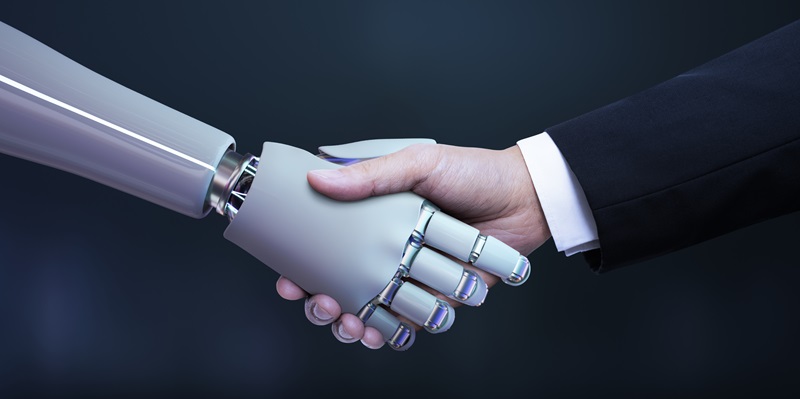The transformative potential of AI-driven hyperautomation is currently laying the groundwork for the evolution of business processes, with the promise of making them smarter and more efficient. This movement parallels the tremendous advancements seen in the realm of autonomous vehicles; as self-driving technology continues to disrupt traditional notions of transportation, so too might hyperautomation revolutionize the processes within an enterprise.
The Ascent of Hyperautomation: Insights and Expectations
The Autonomous Vehicle Paradigm and Enterprise Automation
Just as the automotive industry has propelled vehicles from mere assistive technologies to fully autonomous solutions, the corporate world hopes for a similar transformation where enterprise processes can self-navigate through the complex web of business requirements. The dream is to culminate in a system where processes are as effortlessly managed as a self-driving car coursing through city streets, guided by an integration of sensors and sophisticated software.
Challenges in Realizing AI-Driven Hyperautomation
AI-driven hyperautomation, while promising, is not without its challenges. Much like the autonomous vehicle that must decipher countless environmental variables, hyperautomation systems confront the intricacies of variable process routes, fluctuating data streams, and the idiosyncrasies of human-driven operations. The road to effective hyperautomation requires navigating these hurdles, requiring adaptive systems robust enough to accommodate the unpredictable nature of enterprise environments while still maintaining efficiency and targeted output.
AI’s Role in Customer Support and Beyond
Transforming Customer Support with AI
Artificial intelligence has begun to dramatically reshape customer support. No longer are contact centers solely reliant on human resources; AI’s role is expanding, offering smart solutions to customer inquiries through advanced chatbots and virtual assistants. As reported by Deloitte, AI engagement has reached impressive adoption, with about 80% of contact centers now incorporating some form of AI-driven support. This integration into initial contact points has significantly elevated the efficiency and effectiveness of customer service.
The Evolution of AI-Powered Chatbots
GenAI represents a leap forward in chatbot capabilities. Today’s AI-powered chatbots are not just responding to commands but engaging in meaningful dialogue, resolving issues autonomously with increasing levels of understanding and satisfaction. This generation’s chatbots have begun to navigate customer queries with a degree of nuance that was, until recently, the sole domain of human support staff. Through these advanced technologies, businesses are witnessing an unprecedented deflection of tasks from human agents to their AI counterparts.
Building the Foundations of Hyperautomation
Developing the “Learning Machine”
Much like the self-driving technologies that rely on learning from countless hours of human driving data, the future of AI in the enterprise world hinges on creating a “learning machine.” This hyperautomation system will observe and learn from human interactions within the company to build highly specialized models. For this to occur, there must be profound analysis of workflows, optimization driven by extensive data incorporation, and robust model training. Only then can enterprises begin to see AI systems that truly reflect and augment human expertise.
Nuances in Workflow and Process Execution
Understanding the variances in workflow execution between agents is critical in shaping effective AI models. Even within the same operation, two agents might have different approaches that lead to distinct outcomes. Highlighting these subtleties becomes paramount when designing a learning system that can handle not only routine but also complex, multi-step tasks. Training AI models across diverse scenarios ensures that the resulting hyperautomation is nuanced, sophisticated, and capable of autonomous decision-making.
The Future Landscape of Business Operations
The Shift Toward Intelligent Process Management
Intelligent process management is rapidly becoming a cornerstone of business operations. With the deployment of AI systems that learn and evolve, these processes are poised to become contextually aware and independently operational, similar to a viewpoint when machinery was first introduced to automate manual labor. The goal is to surpass simple automation to achieve a state where AI fully comprehends and independently executes multi-step business processes, ushering in an unprecedented era of efficiency and capability.
The Vision of Autonomous Business Functions
Envisioning a future where business functions are largely autonomous requires believing in the potential of hyperautomation to meet the escalating demands of customers, stakeholders, and regulatory bodies. This implies a landscape where numerous operations within the business ecosystem become “self-driving,” promoting an increase in productivity and addressing the gap between human-centric and machine-driven functions. It is this synergy of human intuition and AI intellect that promises a groundbreaking shift towards greater business efficiency and continual innovation.

